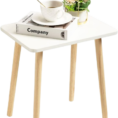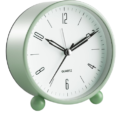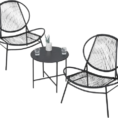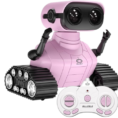Children’s Puzzles: 8 Positive Impacts on Your Child’s Learning Journey

Children’s puzzles are more than just playful distractions — they are valuable educational tools that quietly and effectively shape a child’s mental, emotional, and even physical growth. In a world increasingly dominated by screens, puzzles bring children back to hands-on experiences that challenge the mind, encourage focus, and spark creativity. Here are eight powerful and positive ways children’s puzzles can benefit your child’s learning journey.
1. Strengthen Problem-Solving Skills
When children work through a puzzle, they must think critically, try different combinations, and learn from mistakes. This trial-and-error process builds resilience and sharpens problem-solving abilities — an essential life skill that can be nurtured from a young age.

2. Improve Concentration and Patience
Completing a puzzle — whether it’s a 12-piece farm animal puzzle or one of those detailed 1000 piece puzzles — requires time and focus. As children engage with the activity, they develop the ability to concentrate for longer periods. This enhanced focus translates into better performance in school and greater endurance in other learning tasks.
Puzzles require children to sit still, think carefully, and work through challenges step by step. Unlike fast-paced video games or shows that offer instant rewards, puzzles train the brain to wait for the satisfaction that comes from gradual progress. This process naturally strengthens patience. A child who finishes a complex puzzle has not only exercised their brain but also learned the value of persistence.
This ability to stick with a task — even when it’s difficult — is incredibly important in academic settings. Children who regularly work on puzzles are often better equipped to stay focused on reading, writing, and math exercises. They’re also more likely to approach schoolwork with a calm, methodical attitude, making them more resilient learners in the long run.

3. Promote Hand-Eye Coordination
Children’s puzzles involve aligning pieces, identifying visual patterns, and making precise movements. These small physical tasks strengthen fine motor skills and improve hand-eye coordination — abilities that are important for activities such as handwriting, drawing, and using classroom tools.
4. Encourage Lateral Thinking
Some puzzles go beyond matching shapes and colors. Lateral thinking puzzle games require children to think outside the box. These puzzles challenge the mind to look for unusual solutions and approach problems from different angles, fostering creativity and mental flexibility.
5. Build Memory and Recall
As children try to remember where certain pieces go, they develop and sharpen their memory. Repetition and visual recognition help build short-term memory skills. Over time, these exercises may contribute to better memory retention in academic settings, such as recalling facts or reading instructions.

6. Inspire Confidence and Independence
Solving a puzzle provides children with a sense of accomplishment. That “I did it!” moment is incredibly powerful for self-esteem. It encourages independence as children learn to trust their instincts, make decisions, and complete tasks on their own — valuable skills in both educational and social settings.
7. Foster Social Skills Through Cooperative Play
Children’s puzzles also offer an opportunity for teamwork. Whether it’s completing a puzzle with a sibling, parent, or friend, children learn how to communicate, cooperate, and share. Working together builds emotional intelligence and teaches the value of patience, listening, and joint problem-solving.
8. Offer Educational Fun Without Screens
In a time when digital devices dominate entertainment, parents often look for screen-free, meaningful alternatives. Educational toys toys like puzzles serve this purpose perfectly. Whether shopping at your local store or exploring online platforms like 7up Mall, you’ll find a variety of puzzle options that blend fun and education — without the need for apps or chargers.
Why Puzzles Deserve a Place in Every Home
Puzzles aren’t just toys — they’re foundational learning tools. Children’s puzzles, including everything from shape sorters to 1000 piece puzzles, support healthy brain development, enhance critical thinking, and strengthen emotional resilience. Adding a few puzzles to your child’s toy collection could make a lasting impact on their learning abilities.
As your child grows, consider introducing more advanced types, such as lateral thinking puzzle games, to challenge their logic and imagination. And remember, the process matters just as much as the outcome — every effort to find the right piece is a step forward in their educational journey.
So next time you’re browsing for something meaningful and fun, skip the screen time and choose puzzles — simple yet powerful tools that spark learning, one piece at a time.






























